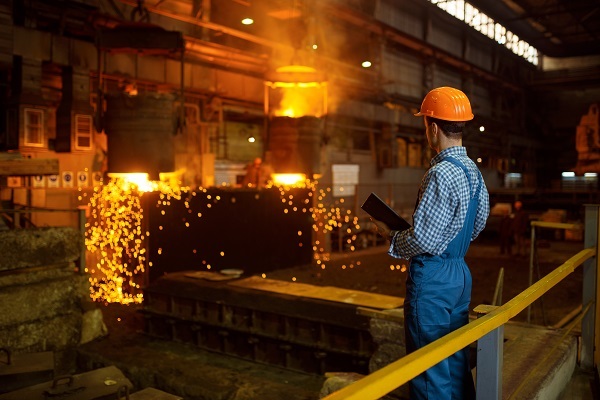Press releases
View all
The Italian Competition Authority launches two investigations into gaming company Activision Blizzard (Microsoft group)
According to the Authority, the video games “Diablo Immortal” and “Call of Duty Mobile” may be in breach of the Consumer Code, particularly due to prompts that encourage in-game purchases to be made without adequate awareness, including by minors
The Italian Competition Authority has launched two investigations into Activision Blizzard (Microsoft group), relating to the videogames “Diablo Immortal” and “Call of Duty Mobile” – described as free to play but offering in-game purchases – for engaging in misleading and aggressive practices, as well as breaching consumers’ contractual rights. In the Authority’s view, the company may be acting in breach of consumer protection rules and, in particular, the duty of professional diligence required in a sector that is particularly sensitive to the risks of gaming-related addiction.
The investigations focus on the possible use of deceptive user-interface design aimed at inducing consumers to play more often, extend their gaming sessions and take up promoted offers. Examples include repeated prompts, both during and outside gameplay, urging users not to miss out on rewards – also through in-app messages and push notifications – as well as to purchase time-limited items before they become unavailable. These practices, together with strategies that make it difficult for users to understand the real value of the virtual currency used in the game and the sale of in-game currency in bundles, may influence players as consumers – including minors – leading them to spend significant amounts, sometimes exceeding what is necessary to progress in the game and without being fully aware of the expenditure involved.
Furthermore, according to the Authority, the parental control features pre-set by the company appear to be aggressive, as they automatically default to options that offer a lower level of protection for minors (such as allowing in-game purchases, unlimited play time and interaction with other players) without there being any active involvement or supervision by a parent or guardian. The Authority also intends to examine how consent for the processing of personal data is obtained when creating an account, as it seems that consumers – including minors – are led to select all consent options, including consent to profiling for commercial purposes, in the belief that they are faced with a mandatory choice. Finally, the investigations focus on whether players receive adequate information about their contractual rights, as current practices appear to encourage users to relinquish those rights unknowingly (for example, the cooling-off period). The Authority is also assessing the company’s ability to block gaming accounts unilaterally, without providing adequate reasons, support or an opportunity to be heard, inevitably resulting in the loss of money – in some cases substantial – spent on digital content.
Rome, 16 January 2026

The Italian Competition Authority launches market investigation into large-scale retail distribution and the agri-food supply chain
The Authority will focus on the role played by large-scale retail chains in the allocation of value added along the agri-food supply chain and in final price formation. Stakeholders may submit their feedback or observations by 31 January 2026
The Italian Competition Authority has launched a market investigation into the role of large-scale retail distribution in the agri-food supply chain, also in view of the widening gap between overall inflation and food price inflation recorded in recent years. In particular, ISTAT data show that between October 2021 and October 2025 food prices rose by 24.9%, almost 8 percentage points higher than the increase recorded over the same period by the general consumer price index (17.3%). Against this backdrop of rising consumer prices, agricultural producers frequently report squeezed margins, or at least insufficient margin growth, which may be partly due to the strong imbalance in bargaining power between farmers and major large-scale retail chains.
In the agri-food supply chain, the trading stage between final distributors and suppliers plays a pivotal role, as it affects both the level of remuneration of suppliers – and, as a result, the profitability of upstream production activities – and consumer price trends. In this context, the investigation seeks, among other things, to analyse how large-scale retail chains exercise their purchasing power, including through non-corporate aggregation arrangements (cooperatives, buying groups and super-buying groups); the fees charged to suppliers for sales-related services (including product listing, shelf placement, promotions, new product launches and trade spending); and the increasing importance of distributor-branded products (private labels).
Issues concerning the exercise of purchasing power by distribution chains are significant from a competition perspective, also because the management of purchasing activities, the provision of services to suppliers, and the procurement and positioning of private label products represent key competitive levers downstream among large-scale retailers and directly affect final price dynamics. The Authority has launched a public consultation on the issues outlined in detail in the decision opening the market investigation. Stakeholders may submit their feedback no later than 31 January 2026 at the following e-mail address: [email protected].
Rome, 14 January 2026
.jpg)
The Italian Competition Authority closes its market investigation into the school publishing sector. Towards a more effective use of digital resources, in agreement with Ministry and publishers
The school publishing sector affects nearly 8 million students and 1 million teachers every year. Average household spending is €580 for lower secondary education and €1,250 for upper secondary education.
The Italian Competition Authority has closed its market investigation into the school publishing sector, which was conducted through extensive consultations with a range of stakeholders, including the Ministry of Education and Merit, publishers and the Italian Publishers Association (AIE). On the basis of its published conclusions, the Authority has sent a formal advocacy report to the Ministry and other competent top-level institutions, providing targeted recommendations for action and oversight, while reserving the right to continue monitoring the sector. Below are selected data and key findings from the market investigation.
SPENDING - Each year, school publishing materials affect nearly 8 million students and 1 million teachers. The average household expenditure per education cycle amounts to €580 for lower secondary education and €1,250 for upper secondary education. The market for new books is worth approximately €800 million per year, while the second-hand market is worth around €150 million. Prices of new books increase in line with inflation; however, the decline in purchasing power makes this expenditure more burdensome, while support schemes remain uneven across regions. The market is highly concentrated, with publishers Mondadori, Zanichelli, Sanoma and La Scuola holding a combined share of more than 80%.
The law currently caps discounts on school books at 15% of the cover price, restricting competition and increasing costs for consumers. However, the Authority considers that collective negotiations between publishers and retailers may be legitimate, as they can enable higher discounts and improve conditions for consumers.
Open educational resources (OER) and school-developed materials can also reduce costs for families and stimulate innovation, including by enabling more personalised learning pathways through new artificial intelligence tools. However, current legislation and the lack of concrete incentives limit their development and mean that, in the absence of policy changes, they are unlikely to become a competitive alternative to commercial publishing capable of driving effective competition on the merits.
DIGITAL RESOURCES - Despite the reform plans launched in 2012, digital resources remain underused in schools: more than 95% of classes adopt combined print-and-digital formats, yet only 16% of digital licences are activated. The Authority’s work highlights licensing conditions and limited platform interoperability as key factors slowing the reform and placing the second-hand market and textbook loan schemes at a disadvantage. In the final stages of the market investigation, the main publishers expressed a willingness to amend these conditions to allow licences to be reactivated at lower cost, the printing of digital content and longer access periods. The Authority encourages these solutions to become standard practice across the sector and calls for institutional action to support this approach. Finally, the Ministry has launched initiatives to promote accessibility and interoperability through a unified authentication system. Publishers and AIE have also expressed readiness to increase transparency between editions, including through amendments to their code for self-regulation. The market investigation also highlighted the potential for dividing books into modules (for example, through QR codes) to reduce their weight – which in Italy is at least twice the European average – and enable more rational replacement of individual sections.
Rome, 12 January 2026

The Italian Competition Authority fines 16 companies and Assofond €70 million for anti-competitive agreement in the foundries sector
The Authority found a cartel involving the main Italian iron foundries and the trade association Assofond. The statutory fine cap amounted to around €600 million.
The Italian Competition Authority has closed its investigation into C2MAC Group S.p.A., Fonderia Corrà S.p.A., Fonderie Orazio and Fortunato De Riccardis S.r.l., Fonderie Guido Glisenti S.p.A. and its subsidiary Lead Time S.p.A., Pilenga Baldassarre Foundry S.r.l. and its parent company E.F. Group S.p.A., Fonderie Mora Gavardo S.r.l. and its parent company Camozzi Group S.p.A., Zanardi Fonderie S.p.A., VDP Fonderia S.p.A., Fonderie Ariotti S.p.A., Ironcastings S.p.A., Fonderia Zardo S.p.A., ZML Industries S.p.A. and its parent company Cividale S.p.A., as well as the trade association Assofond. The Authority’s investigation revealed the existence of an anti-competitive agreement, in breach of Article 101 TFEU, in the Italian market for the sale of cast irons. The infringement started no later than 5 February 2004 and continued until 30 June 2024.
For this reason, the Authority, in light of maximum applicable fines of approximately €600 million given the seriousness of the conduct, imposed fines totalling €70 million taking into account the significant crisis affecting the sector.
The Authority found that the parties coordinated their commercial strategies to support price increase requests, thereby strengthening their bargaining power vis-à-vis customers, and to preserve profit margins, particularly during periods of economic downturn. This was achieved through exchanges of sensitive information and by jointly developing price indexation mechanisms (the “Assofond Indicators”), which enabled the foundries to update in a coordinated manner an increasingly large portion of the price of cast irons, including the sales margin.
Rome, 31 December 2025

Meta AI: the Italian Competition Authority orders Meta to suspend the terms excluding competing AI Chatbots from WhatsApp
The scope of the investigation into Meta was broadened in November to include the new WhatsApp Business Solution Terms. The case, opened last July, examines the possible abuse of a dominant position arising from the company’s integration of the Meta AI service into WhatsApp, where it is given greater prominence than competing services.
The Italian Competition Authority has imposed interim measures on Meta Platforms Inc., Meta Platforms Ireland Limited, WhatsApp Ireland Limited and Facebook Italy S.r.l. (hereinafter “Meta”). The investigation was launched in July 2025 over the possible abuse of a dominant position in breach of article 102 TFEU because of the company’s integration of the Meta AI service into WhatsApp, where it is given greater prominence than competing services. On 25 November 2025, the Authority broadened the scope of the investigation and also opened a procedure for the adoption of interim measures with respect to the new WhatsApp Business Solution Terms. These terms, which were introduced on 15 October and are set to become fully effective by 15 January 2026, completely exclude Meta AI’s competitors from the WhatsApp platform in the AI Chatbot services market.
Upon completing the procedure for the adoption of interim measures pursuant to article 14-bis of Law 287/1990, and having heard the parties following the review of their written briefs, the Authority found that the conditions for adopting interim measures were met with respect to the effects of the conduct in Italy. According to the Authority, Meta’s conduct appears to constitute an abuse, since it may limit production, market access or technical developments in the AI Chatbot services market, to the detriment of consumers. Moreover, while the investigation is ongoing, Meta’s conduct may cause serious and irreparable harm to competition in the affected market, undermining contestability. Therefore, the Authority has ordered Meta to immediately suspend the WhatsApp Business Solution Terms in order to preserve access to the WhatsApp platform for Meta AI’s competitors. The Italian Authority is coordinating with the European Commission to ensure that Meta’s conduct is addressed in the most effective manner.
Rome, 24 December 2025

Italian Competition Authority: Ryanair DAC and its parent company Ryanair Holdings plc fined over € 255 million for abuse of a dominant position
The company, which holds a dominant position in the market for domestic and European passenger air transport services to and from Italy, implemented an abusive strategy to hinder travel agencies relying on Ryanair flights as an input for tourism services
The Italian Competition Authority has imposed a 255.761.692 euro fine on Ryanair DAC, jointly and severally with its parent company Ryanair Holdings plc, for abuse of a dominant position, which began in April 2023 and continued at least until April 2025. Ryanair holds a dominant position in the upstream market for scheduled passenger air transport services to and from Italy, covering both domestic and European routes, as an input for online (OTAs) and traditional travel agencies. Ryanair’s dominant position stems not only from its sizeable and rapidly growing market shares (38-40% of passengers carried across all routes to and from Italy), but also from a number of other factors. Taken together, these elements give Ryanair significant market power, allowing it to act largely independently of competitors and consumers, as reflected in the clear gap between its performance and that of its main competitors.
Following a complex investigation, the Authority found that Ryanair put in place an elaborate strategy affecting the ability of online and traditional travel agencies to purchase Ryanair flights on ryanair.com. In particular, the company’s strategy blocked, hindered or made such purchases more difficult and/or economically or technically burdensome when combined with flights operated by other carriers and/or other tourism and insurance services.
The investigation revealed that, at the end of 2022, Ryanair began to explore ways to hinder travel agencies. From mid-April 2023, these plans were implemented through measures that intensified over time. At first, Ryanair rolled out facial recognition procedures on its website aimed at users who purchased their ticket through a travel agency. Then, at the end of 2023, when the Authority’s investigation was underway, Ryanair totally or intermittently blocked booking attempts by travel agencies on its website (for example, by blocking payment methods and mass-deleting accounts linked to OTA bookings). In a third phase of its strategy, in early 2024, Ryanair imposed partnership agreements on OTAs and, subsequently, Travel Agent Direct accounts on traditional agencies, containing terms that restricted agencies from offering Ryanair flights in combination with other services. To “persuade” agencies to partner up, Ryanair periodically blocked bookings and launched an aggressive communication campaign against non-signatory OTAs, labelling them “pirate OTAs”. In April 2025, Ryanair made its full white-label iFrame solution available to OTAs. This enabled the integration of IT applications (so-called APIs) which, if properly implemented, make it possible to restore effective competition in the downstream market for tourism services.
Therefore, the Authority concluded that, at least until the integration of APIs, Ryanair’s conduct could and did in fact hinder travel agencies’ sales and affect OTAs’ ability to attract internet traffic. The company’s conduct ultimately prevented agencies from purchasing Ryanair flights in combination with flights operated by other carriers and/or additional tourism services. This weakened competition from agencies, both directly and indirectly, and in turn reduced the quality and range of tourism services available to consumers.
Rome, 23 December 2025

The Italian Competition Authority fines Apple over 98 million euro for abuse of a dominant position
The Authority found the App Tracking Transparency (“ATT”) policy to restrict competition. The policy lays down the privacy rules imposed by the company on third-party developers of apps offered on the App Store.
The Italian Competition Authority has imposed a 98,635,416.67 euro fine on Apple Inc., Apple Distribution International Ltd and Apple Italia S.r.l. (hereinafter “Apple”) for abuse of a dominant position. Apple breached article 102 of the TFEU in the market for the supply to developers of platforms for the online distribution of apps to iOS users. In this market, Apple holds a super-dominant position through its App Store.
The Authority conducted a complex investigation in coordination with the European Commission, other national competition authorities and the Italian Data Protection Authority. The Authority’s findings confirmed the restrictive nature – from a competition-law perspective – of the App Tracking Transparency (“ATT”) policy, i.e. the privacy rules imposed by Apple for iOS devices, as of April 2021, on third-party developers of apps distributed through the App Store. In particular, third-party app developers are required to obtain specific consent for the collection and linking of data for advertising purposes through Apple’s ATT prompt. However, such prompt does not meet privacy legislation requirements, forcing developers to double the consent request for the same purpose.
The Authority established that the terms of the ATT policy are imposed unilaterally and harm the interests of Apple’s commercial partners. The terms were also found to be disproportionate to the achievement of the company’s stated data protection objectives. Since user data are a key input for personalised online advertising, the double consent request that inevitably arises from the ATT policy, as implemented, restricts the collection, linking and use of such data. As a result, such double consent requirement is harmful to developers, whose business model relies on the sale of advertising space, as well as to advertisers and advertising intermediation platforms.
The double consent request renders the ATT policy disproportionate, since Apple should have ensured the same level of privacy protection for users by allowing developers to obtain consent to profiling in a single step.
Rome, 22 December 2025

The Italian Competition Authority’s intervention secures clearer and more comprehensive information on EV driving range, battery capacity degradation and standard warranties
The Authority has closed its investigations into Stellantis Europe S.p.A., Tesla Italy s.r.l., BYD Industria Italia s.r.l. and Volkswagen Group Italia S.p.A.
The Italian Competition Authority has closed with commitments four investigations into Stellantis Europe S.p.A., Tesla Italy s.r.l., BYD Industria Italia s.r.l. and Volkswagen Group Italia S.p.A. The investigations centred on the adequacy and transparency of the information advertised to consumers regarding EV driving range, battery capacity degradation and limitations on standard battery warranties.
In particular, as a result of the commitments made binding by the Authority, the companies will review and redesign their websites to present clear and comprehensive information, in a single dedicated section, on the real-word driving range of electric vehicles, the factors impacting such range, battery capacity degradation, as well as on the terms/limitations applied to standard battery warranties. Consumers will therefore have immediate access to information regarding the main features of electric vehicles.
Under the commitments, the companies will also introduce an EV range simulator. By factoring in the key variables – including different usage modes – affecting driving range, this tool will allow consumers to compare vehicles available on the market within the same segment and make better-informed choices. The tool will also provide an approximate indication of the main factors influencing the real-world driving range of EVs and battery capacity degradation over time. Lastly, the websites will display clear and detailed information on battery State of Health levels for standard warranty purposes and on the terms/limitations applied to such warranties.
The companies are required to implement all commitments within 120 days. Moreover, Stellantis, BYD and Volkswagen will ensure improved battery efficiency levels for the electric vehicles they market by raising the battery State of Health threshold under the standard warranty, to the benefit of consumers.
Rome, 19 December 2025
Text of the decision Stellantis
Text of the commitments Stellantis

The Italian Competition Authority launches investigation into Citizen and Swatch
Citizen and Swatch, two leading watch manufacturers, may be using commercial strategies that limit price competition among their retailers through a vertical agreement restrictive of competition
The Italian Competition Authority has launched an investigation into Citizen Watch Italy S.p.A. and its Japanese parent company, Citizen Watch Co. Ltd., and another investigation into The Swatch Group (Italia) S.p.A. and its Swiss parent company, The Swatch Group Ltd. The investigations centre on a possible infringement of Article 101 of the Treaty on the Functioning of the European Union (TFEU), consisting in the fixing of retail prices displayed online by the groups’ authorised distributors (jewellers and watch retailers).
Citizen, a leading manufacturer and distributor of several watch brands – among which, in addition to Citizen, also Bulova, Vagary, Fréderique Constantine and Alpina – may be instructing its selective distribution network to follow imposed retail prices. At the same time, Citizen seems to be monitoring their pricing practices and adopting retaliatory commercial measures against distributors offering discounts and prices that differ from those indicated.
Swatch, another major producer and marketer of several watch brands – among which, in addition to Swatch, Tissot, Mido and Hamilton – also seems to impose retail prices and monitor its selective distribution network, adopting retaliatory commercial measures against distributors that fail to comply.
According to the Authority, the resale price-fixing system implemented by the two groups may constitute a hardcore restriction under Article 4(a) of Commission Regulation (EU) No. 720/2022, as well as a violation of Article 101 TFEU.
Inspections at the premises of Citizen Watch Italy S.p.A. and The Swatch Group (Italia) S.p.A. were carried out on Wednesday 3 December by the Authority’s officials, assisted by the Special Antitrust Unit of the Italian Financial Police (Guardia di Finanza).
Rome, 9 December 2025

Italian Competition Authority: six call centre companies fined over 500,000 euro for misleading telemarketing
The companies contacted consumers with offers to activate energy and phone service contracts and provided misleading information regarding the caller’s identity, the reason for the call and the financial benefits of the proposed offers.
The Italian Competition Authority has imposed over 500,000 euro in fines on call centre companies promoting energy contracts (Titanium S.r.l. and Fire S.r.l.; J.Wolf Consulting S.r.l.) and contracts in the telecommunications sector (Nova Group S.r.l. and Communicate S.r.l.; Entiende S.r.l.). Specifically, the Authority imposed a fine of 160,000 euro jointly on Titanium S.r.l. and Fire S.r.l., 120,000 euro on J.Wolf Consulting S.r.l., 80,000 euro on Nova Group S.r.l. and 40,000 euro on Communicate S.r.l., 120,000 euro on Entiende S.r.l.
The Authority established that these companies contacted consumers with offers to activate energy and phone service contracts, based on misleading information regarding the caller’s identity, the reason for the call and the financial benefits of the proposed offers. In practice, the companies employed a variety of telemarketing methods, all involving the transmission of unclear, incomplete and misleading information.
In the energy sector, call-centre operators were found to pose as staff of regulatory and supervisory Authorities or of a “utilities billing support centre”, and to inform consumers of supposed regulatory price increases or alleged irregularities (duplicate activation of supplies on a single account or switching-related problems), with the aim to persuade consumers to sign a new supply agreement. In the telecommunications sector, call-centre operators claimed to be working for the technical or administrative department of the consumer’s current provider and falsely reported imminent service disruptions, or the expiry of the tariff plan under the existing contract and price increases from the user’s current provider. They also claimed that these events could be avoided by activating a new offer with a different operator at particularly favourable contract terms, which later proved to be false.
This conduct was therefore found to affect consumers’ freedom to make an informed decision when selecting a provider, as it impaired their ability to assess the benefits of available offers through the provision of false information, in breach of Articles 20, 21 and 22 of the Consumer Code.
The Authority reminds consumers that the website www.difenditicosi.it provides useful information regarding their rights and the tools to protect themselves from persistent and aggressive call-centre practices.
Rome, 9 December 2025





